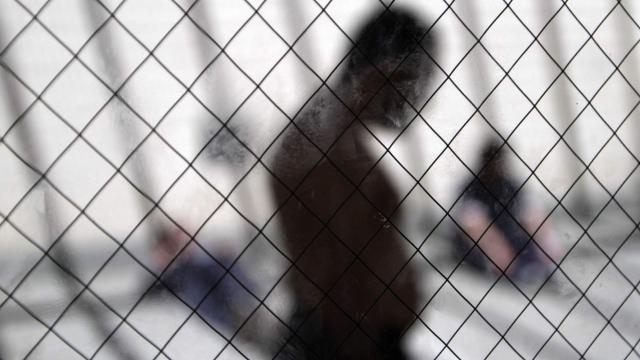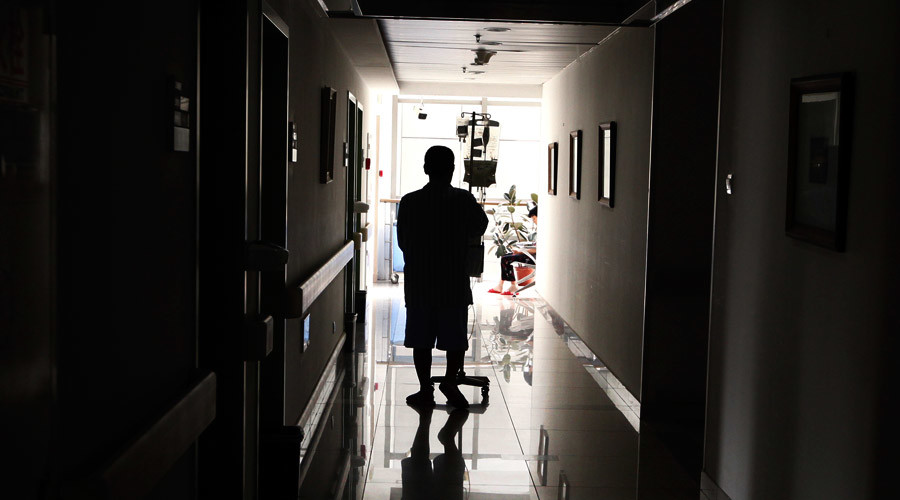
Last year saw the highest number of deaths in England in nearly half a century – a burgeoning mortality rate now being pinned to government cuts in social services and other austerity measures in one of the richest nations on Earth.
New preliminary figures released by the Office for National Statistics indicate death rates in 2015 increased by 5.4 percent over 2014. The rise in deaths – almost 27,000 more last year than the one previous – represents the biggest jump in England’s national death rate since 1968.
Mortality figures in England had been dropping steadily since the 1970s, but since 2011, the downtrend death rate trend has been reversed. Health advisors are now pinning the rise in mortality rates to austerity measures and cuts in essential social services.
Danny Dorling, professor at Oxford University and an advisor to Public Heath England, warned of the link between England’s healthcare crisis and rising death rates.
“When we look at 2015, we are not just looking at one bad year. We have seen excessive mortality – especially among women – since 2012. I suspect the largest factor here is cuts to social services – to Meals on Wheels, to visits to the elderly," Dorling told the Telegraph.
“We have seen these changes during a period when the health service is in crisis, while social care services have been cut back,” he continued.
Dorling said the rise in deaths is clearly the biggest since the 1960s, but “may well turn out to be the greatest rise since the Second World War.”
Death by a thousand cuts
Last year, due to steep reductions in the funds they receive from government, local authorities across the UK, known as councils, were forced to make hefty cuts to adult social care. On top of the 31 percent in budgets they’ve had to slash during the last five years, the Association of Directors of Adult Social Services (ADASS) calculated that a further £1.1 billion cut was planned for 2015/16.
Claiming the most vulnerable in society are being “placed in jeopardy” by the hefty cuts, research has showed that despite an aging population – and therefore increasing demand for adult social care – 16,000 people fewer people in England received nursing, home or residential care last year.
Those findings were published by ADASS, whose President Ray James added that in order to “avoid damage to the lives of older and vulnerable people who often have no one else but social care to turn to,” the cuts must be short lived.
“What is at stake is the continuing capacity of adult social care to sustain services to those in greatest need. In virtually all our authorities, the number in need is growing, while the complexity of their needs is increasing,” said James.
Because of a 32 percent cut to social care budgets in 2014, many nursing homes for the elderly across England and Wales are struggling to recruit sufficient care staff, resulting in patients receiving insufficient care. Information about England’s rocketing death rate was first published in the Health Service Journal and has provoked calls for a national investigation.
It's not just the elderly in England who are bearing the brunt of tough austerity measures – and this isn’t the first time the government’s harsh austerity measures, including cuts to vital services, have been associated with deaths.
Last November, research suggested that austerity, debt and unemployment are significant factors in the growing number of men in the UK who have committed suicide in recent years.
Research by the universities of Oxford, Manchester and Bristol, which was funded by the National Institute for Health Research (NIHR), noted that the impact of austerity was likely to be an important contributor in the rise of suicides in Britain. In response to the research, David Gunnell, professor of epidemiology at the University of Bristol, said:
“In a recession, all sorts of things happen. People lose their jobs, the government makes decisions about where to make cuts. There has been a series of changes over the last three or four years, such as the bedroom tax [and] benefit changes. The austerity measures are ongoing, with the current debate around tax credits. Unemployment is not the whole story.”
NHS, in crisis, delivers "threadbare services"
The National Health Service crisis has been in the headlines in recent weeks following strikes by tens of thousands of junior doctors, who are protesting the government’s new contract that imposes longer working hours, lower pay and a removal of safety measures.
Aside from those highly-publicized strikes, further revealing the fragility of the NHS, the spike in mental health deaths in recent years shows an NHS struggling to cope with austerity cuts and delivering what have been referred to as “threadbare services.”
Newly released NHS figures reveal that the number of annual deaths among mental health patients in England has increased by 21 percent in the last three years.
Liberal Democrat Member of Parliament Norman Lamb, who was the mental health minister in the UK’s coalition government until last May when the new Conservative government took over, pinned the rising number of mental health patient deaths to the underfunding of “threadbare mental health services.”
A far cry from Prime Minister David Cameron’s resounding promise to "cut the deficit, not the NHS" during last year's election campaign, the hard-hitting budget cuts that the NHS is being forced to accept have already devastated society's most vulnerable. And there are few signs that help is on the way.
If you liked this article and want to see more original reporting by Occupy.com, PLEASE DONATE TODAY!
3 WAYS TO SHOW YOUR SUPPORT
- Log in to post comments













Comments
D.H.Fabian replied on
Austerity in US
Over 1,000 Americans die each year as a result of Bill Clinton's welfare "reform," usually by freezing to death, untreated illnesses, etc. The austerity agenda rema9ins as popular as ever.
Brian Elwin Pomeroy replied on
Thee Original Money Whores
UK taught USA everything about power mongering and money whoring. I am ashamed to be a white man. I can't even enjoy money. I hate these white trash money whores more than any could imagine. Of course, they couldn't do what they do without ignorant voter. And IF they believed in god like they're always praying, they'd know they'd be rotting in hell.